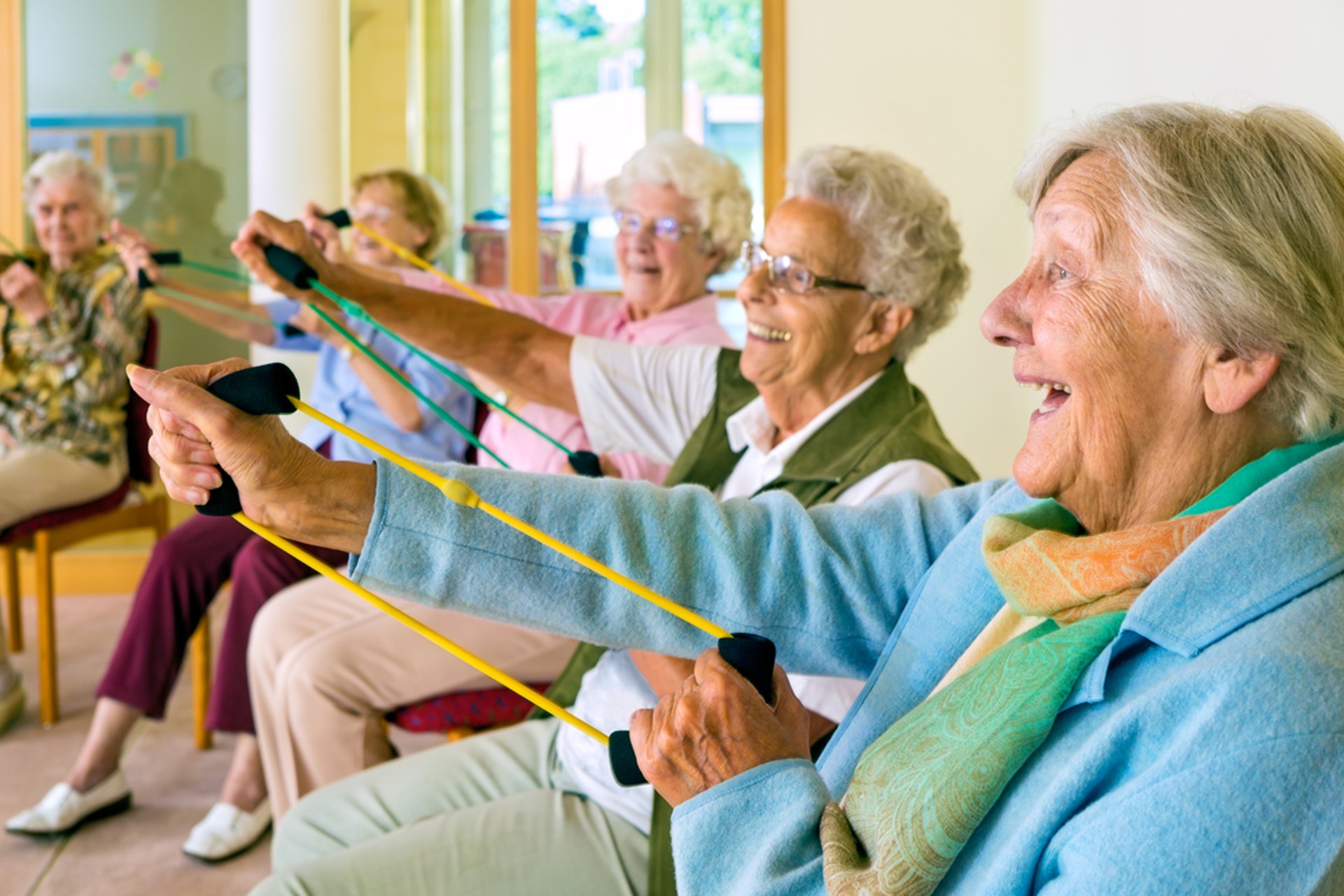
Wouldn’t it be great if better health was just a few laughs away?
According to new research from Georgia State University, incorporating laughter into an exercise program not only makes older adults more likely to exercise, but also can boost seniors’ mental health and aerobic endurance.
The GSU-led study, whose results were published in the journal The Gerontologist, analyzed the impact of adding forced-laughter exercises into a fitness program that focuses on strength, balance and flexibility. In the study, older adults residing in four assisted-living facilities took part in a moderate-intensity group exercise program called LaughActive.
According to the LaughActive website, the program developed by the GSU Gerontology Institute enables participants to “laugh abundantly and achieve health benefits of laughter without requiring a sense of humor or even a reason to laugh – and get a full workout at the same time.”
Celeste Greene, a researcher at the GSU Gerontology Institute and lead author of the study, says in a press release:
“We want to help older adults have a positive experience with exercise, so we developed a physical activity program that specifically targets exercise enjoyment through laughter. … Laughter is an enjoyable activity and it carries with it so many health benefits, so we incorporated intentional laughter into this program to put the fun in fitness for older adults.”
The GSU researchers say laughter has already been shown to strengthen and relax muscles, regardless of whether it’s simulated laughter or genuine laughter.
The study found the following:
- More than 96 percent of participants in the LaughActive program said laughter makes exercising more enjoyable.
- Nearly 89 percent of the older adults said adding laughter to exercise program makes exercise more accessible.
- Nine in 10 of the participants reported that inserting forced laughter into an exercise program provides motivation to participate in additional exercise classes and activities.
Do you exercise on a regular basis? What do you think of the findings of this forced-laughter exercise study? Share your comments below or on our Facebook page.




Add a Comment
Our Policy: We welcome relevant and respectful comments in order to foster healthy and informative discussions. All other comments may be removed. Comments with links are automatically held for moderation.